Notes on Travelling in Iraq
In April I spent 28 days in Iraq. I had planned to stay a week, two at the most.
I published a short essay in the Ottawa Citizen about some of my observations and encounters in Iraq. It features excerpts from conversations I had with various Iraqis whose lives are held back by the aftereffects of the U.S. invasion. Start there to learn more about the 21st-c. Iraqi perspective.
On April 2, I flew to Baghdad from Tbilisi, Georgia, via Dubai. About US$675 without a return ticket. Hardly affordable for the lowly Western marketing manager. Can’t imagine how Iraqis feel.
I saw the following cities: Baghdad, Samarra, Hilla, Karbala, Erbil, and Mosul, but I barely touched the surface of what’s really there. I stayed 28 days in all yet didn’t want to leave. I still feel like I need another two weeks to see the bare minimum, which would include the Basra Marshlands, the Ziggurat of Ur, and the city of Sulaymaniyah.
I hesitated to book a flight out. I kept promising myself “only a few more days” for a full week and a half until, eventually, I had to physically tear myself from this dang country I now love.
Misc.
Population – 43 million
Population growth rate (2015-2020) – 2.3% (Canada: 0.5%)
Estimated population in 1970– 9.8 million
Size – 438,000 square kilometers (about the size of Sweden)
GDP (nominal, 2021) – $207 billion (higher than Portugal, New Zealand, and Greece)
GDP growth rate (2021) – 7.0% (higher than China, India, and Canada)
GDP per capita (2021) – $4,775 (between Ukraine and Fiji)
GDP per capita PPP (2021) – $5,001
Biggest export – Crude oil (99% of total exports; 85% of federal budget)
Median age – 21.2
Life Expectancy (2020) – 69
Republic founded – 1958
Religion (2020) – 95-98% Muslim (mostly Shia), 2-5% Christian (mostly Chaldean Catholic)
Corruption Perceptions Index ranking – #157 (endemically corrupt)
Air Particulate Pollution - 23.66 µg/m³ (27th worst)
Adult literacy rate - 85.6%
Index of Economic Freedom - Unranked (with Syria, Somalia, Afghanistan)
Economic Intelligence Unit government rating - Authoritarian
Reporters Without Borders press freedom ranking - #172 (8th worst)
Freedom House Index - Not free
Iraq holds regular, competitive elections, and the country’s various partisan, religious, and ethnic groups generally enjoy representation in the political system. However, democratic governance is impeded in practice by corruption, militias operating outside the bounds of the law, and the weakness of formal institutions.
- Freedom House (Freedom in the World Report, 2023)
Getting There
It wasn’t my idea. My friend, Pram, had spent all of last summer in the country. Pram is semi-retired from a short career in finance and is now driving a Volkswagen Beetle around the world, having started in England.
We had previously roomed together in Romania, where we met. We later crossed paths again, coincidentally, in Georgia. I had been floating the idea of going somewhere a bit off-path in the Middle East, and he sold me on Baghdad over dinner.
I bought a one-way ticket because I wasn’t sure if I’d last a month or a single day. Maybe I’d freak out and leave immediately.
Thanks to Pram, I had locals waiting for me in Baghdad when I landed. But, as I later learned, it didn’t really matter whether I was alone or not. Because, in Iraq, it’s impossible to be alone.
Iraqi social customs differ starkly from everywhere I’ve been to previously. Once you arrive in Iraq, you become part of a mostly functional 43-million-person family. Almost every day at least one person (ie. a restaurant owner, hotel staff, convenience store attendant, etc.) would give me their WhatsApp and say I could call them for ANY reason whatsoever – food, drinks, translations, a place to stay, a shower to use, a ride somewhere, advice, money, ANYTHING.
I was often invited unprompted into people’s homes to share meals. While I ate at restaurants, strangers would approach me at my table to shake my hand and welcome me to the country. After eating, I would ask for the bill only to learn that someone had already paid it and left. This happened no fewer than four times.
The Iraqi people are the friendliest I have ever encountered, and there is no close competition from any other country. A day spent in Iraq without making additional friends is only possible if you deliberately close yourself to the possibility of making any.
But politeness is more hit-or-miss. For example, instead of queuing in Iraq, you simply inch closer to the front of the massive swarm of bodies pressed shoulder-to-shoulder. There’s a chance that, within this near-human-crush, you might find yourself wedged between two impatient habibis having a violent shouting match that comes dangerously close to blows.
In Middle Eastern countries, which are near-universally friendly, there’s this thing where people “almost fight”—there’s a bit of in-your-face showmanship with one another, but no one lays a finger. I find this type of thing is often the case in “friendly” countries, which tend not to follow civil politeness norms.
In “polite” countries, such as Finland or Japan (maybe the world’s best queuers), you’re probably never getting invited over to a stranger’s home for dinner. In friendly countries, such as Iraq and Ukraine, you and strangers laugh about the human crush you almost died in while eating at their kitchen table. There is an inverse relationship between politeness and friendliness, and Iraq maximally represents the “friendly” side of the spectrum.
During one of my first nights in Baghdad, I ventured off to Al-Kadhimiya Mosque, an early 16th-century Shia shrine on the outskirts of the city. The mosque compound and the surrounding city blocks were filled with many thousands of Iranian pilgrims. It is the fourth holiest site in Islam and an appreciably conservative place. Women wore full veils—something rare in most Baghdad city streets—and men knelt in prayer at every corner.
It was maybe the “least Western” area of Iraq that I saw during my time in the country. Shamefully, I admit that I felt scared while walking here. It looked like the kind of movie set that Hollywood uses to recreate scenes of terrorist attacks. Never in my nearly three years of travel have I felt more estranged, anxious, and truly fish-out-of-water than during those hours when I roamed, as a white guy with a manbun, through and around Al-Kadhimiya.
On the way there, my taxi driver asked why I was alone, and warned that I please be careful. It is, admittedly, a strange place for a Westerner to be. The neighbourhood containing the mosque is a supposedly securitized zone, meaning you have to pass through (seemingly dysfunctional) metal detectors and get frisked by a police officer to gain entry.
Once inside the district, it’s a 30 or 40-minute queue mass-swarm-shuffle toward the entrance of the mosque compound. Before you enter, you have to forfeit your phone and electronics to a security guard. I find this a bit unusual in retrospect, as the two other Shia shrines I visited (in Karbala and Samarra) ranked similarly on the holiness hierarchy but still allowed discreet photography.
I wish I could show you the inside of the mosque. It is, hands-down, one of the most majestic and indescribable human creations. Imagine a sacred palace made of wall-to-wall granite and diamond and decorated with reflective jewels that are so luminescent they could be confused for strobe lights, with Arabic script written on the walls and fine Persian rugs hugging your bare feet underneath while men of all ages fall to their knees and sing or pray or weep. There is hardly a comparable site in Christianity, even counting Notre Dame, St. Chapelle, Sagrada Familia, and, my personal favourite, Cologne Cathedral.
Never before had I looked upon a physical object and suddenly felt compelled to pray. Sitting there, I felt more in common with the robe-wearing, Farsi-speaking Arab and Persian men surrounding me than I have in perhaps any place with as many people. I was reminded of Philip Goff’s “panpsychism”; the idea that consciousness occupies all physical matter, constituting in tandem the fundaments of our shared reality. If this theory of mind were to make any sense at all, it would be in this sort of environment. To be there was more an internal sensory experience, a deluge of common feeling. There we were, surrounded by the most sacred and austere material creation, but what was felt most strongly was the presence of other minds.
My fears (and the taxi driver’s) were unfortunately not unfounded.
The shrine and its pilgrims have been subjected to numerous terrorist attacks committed by Sunni extremists in recent years. In 2016, it was the site of a triple car bomb that killed 21 people. In 2009, three separate attacks killed an additional 111 combined over the course of the year. Many others preceded those attacks during the period of horrific civil anarchy that marked Iraq from 2005 to 2008.
I never felt afraid while inside the mosque itself, but walking through the crowded, dark, adjoining streets both before and afterward had me looking over my shoulder, heart going nuts, constantly scanning for exits.
After visiting the mosque, something strange happened.
I had left the mosque compound and the surrounding district, and decided to film a short video clip of the nighttime streetscape—at the time, I was considering making a travel vlog of my stay in the country. I wanted quick, discreet footage of the busy public square before catching a taxi back to Muntadher’s place. I was able to record for all of 5 or 6 seconds until a police officer snatched the camera from my hands and started walking away with it. I chased after him and demanded he give it back to me. But he ignored me, looking visibly livid.
In some sort of enraged panic, I guess I made a small scene. A good dozen or so local men (mostly taxi drivers) surrounded the police officer and shouted at him furiously until he returned the camera to me. It was such an alien experience. In Canada, I’d never have my property arbitrarily seized by authorities in public; I’d also never have it returned to me by a mob of angry good samaritans.
As far as “danger” goes, petty extortion such as this is about the worst that any foreigner can reasonably expect while travelling in Iraq. The officer was definitely looking for a quick bribe, maybe $10 would have done it.
Shakedowns such as these are not uncommon in developing countries, but they usually don’t involve the outright seizure of your stuff. A standard shakedown would have an officer approach you and demand you pay a fine for photographing something “without a permit”, or ask for a toll to walk down a specific street (usually one leading somewhere of touristic interest), or for a fee to access a specific building.
Sometimes they’re uniformed officers, other times they’re plain-clothed “security guards”, but rarely would either type of bribe-taker ever snatch your belongings from your hands.
Of course, if you’re an Israeli national, much worse can happen to you.
A couple of weeks before I arrived, Elizabeth Tsurkov, a Princeton University student, was kidnapped from the streets of Baghdad for carrying an Israeli passport. The abduction is alleged to have been carried out by an Iranian-backed militia group. Her whereabouts are still unknown.
These armed groups were originally invited to the country to help repel ISIS in the mid-2010s when the republic was on the brink of collapse. Now, they wield enormous influence in Iraqi society, operate above the law, and are ultimately accountable to Iranian religious and governmental leadership and not the Iraqi people.
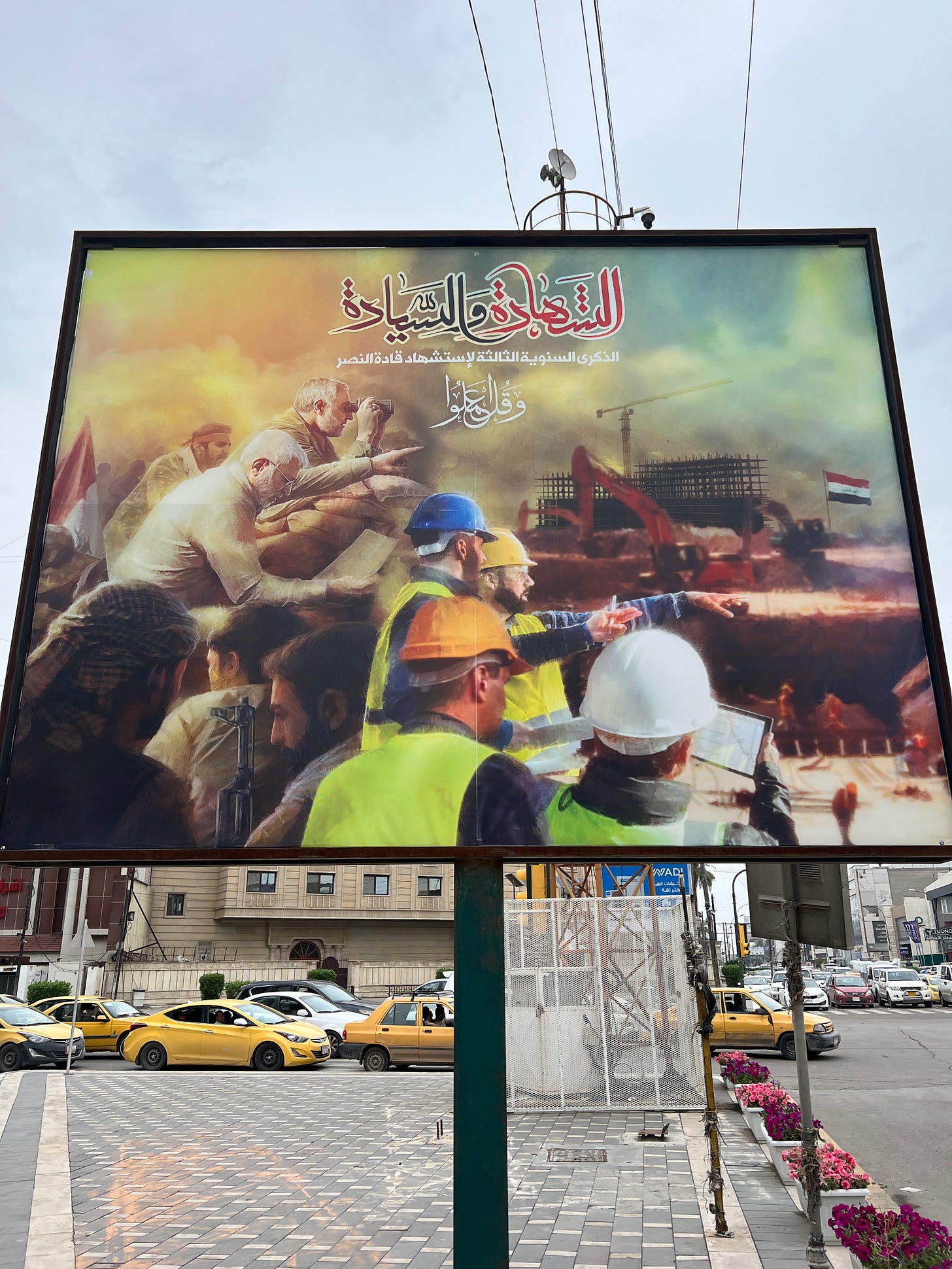
I had at least one spooky encounter with armed men. While walking to a co-working cafe in Baghdad, I tried to cut through a sidestreet that would’ve saved me a good 15 or 20 minutes of travel time. In the Iraqi mid-day heat, you look for whatever shortcuts you can find. But when I entered the alley, men with assault rifles stopped me and asked me where I was going and who I was. They were concerned and serious, but not particularly threatening.
I handed over my documents and showed them my route on Google Maps, but they didn’t really understand. A middle-aged local in a business suit noticed the situation and approached, speaking fluent English. He talked to the men, and they let me continue down the alley.
The most alarming thing about these kinds of interactions is that you don’t know who the gun-wielding guys are. The police carry guns. The military carries guns. The security guards carry guns. The militias carry guns. The criminals carry guns. I had no idea if I was talking to the military, or militias, or whatever. They could’ve been any of the above.
Every street corner in Baghdad is patrolled by someone with a gun. Police are ubiquitous, as are military personnel. They’re usually seated on folding chairs watching you go by, or overlooking the street from metal watchtowers.
I don’t want to paint federal Iraq as a grim, menacing police state, because it isn’t. They would often smile and nod at me, happy to see foreigners start to trickle in. On at least three occasions, uniformed soldiers asked for photos with me, or to exchange Facebook or Instagram accounts. A couple of them still regularly initiate video calls with me when they’re with their family, and I’ll sometimes briefly answer to wave at everyone and say salam. Iraqi security forces always made me feel safe, and even when they stopped to question me I understood that this was for my own safety and well-being.
How It Works
After you get off the plane at Baghdad International, you hand your passport and US$77 cash to a customs offer who disappears to an office for half an hour. I don’t know what happens if you don’t have cash on hand—I suspect they take you to a hidden ATM somewhere within the airside zone.
You then wait in the arrivals lounge, which looks like this:
While you wait, you fill out a form that looks like this:
After a while, the officer returns with a pink slip glued into your passport, taking up a full page, that permits a stay of up to 90 days.
All of the civilians who work at the airport will be very kind to you. They will be curious about who you are, asking all sorts of questions about whether you’re an influencer or a politician, or somebody important—why else would you be there?
After walking out the door, you’re forced to pay about US$40 for a private limo to your listed hotel in downtown Baghdad. It’s very overpriced for a 15-minute drive, but the airport transfer will prove to be the most expensive purchase you will have to make in Iraq. The $0.75 falafel pitas and $0.25 cups of sweet tea, which you will live off of, will compensate.
The one road out of Baghdad International Airport involves four or five stops at military checkpoints. There is no public transit serving the airport and only one taxi company is authorized to shuttle tourists through the security ring—as price setters, they could probably do a lot worse than 40 bucks.
Through the taxi window, the landscape surrounding Baghdad is surprisingly green and lush. It could be confused for southern California.
But the moment you step out of the taxi, it is immediately obvious that you aren’t, in fact, in southern California.
Because the smell of Baghdad is horrid. It is easily the worst-smelling city I have ever visited. It has a wet, pungent, dumpy garbage odour that wafts through every square foot of the city. It’s a bit strange, because Baghdad is neither the most congested nor visibly polluted city I’ve been to. In the Karrada district, for example, there are many wide boulevards without litter or garbage, and with fairly moderate car traffic. Yet the smell persists everywhere. Although you can’t escape it, your nose adjusts after a few days. Eventually, after enough time, you don’t even mind it. You will love the Baghdad garbage smell.
The smell is compensated for by the extremely pleasant-smelling interior spaces. Iraqi bakhoor incense and various fragrances are used widely to make living rooms, cafes, or just about any indoor environment smell fresh and clean. But it does make the contrast that much fouler when you eventually venture back outside.
Once you’re in Baghdad proper, you’re more or less free to do what you want. Nowhere is off limits, everything is affordable and, with a few bucks, shockingly accessible.
For accommodations, there’s a popular hotel in Karrada that Western tourists often stay at. It costs US$25 a night, breakfast included. My first night I stayed at a totally modern-looking US$50 hotel. In the bathrooms are heated floors and granite vanities. You would’ve guessed it was Luxembourg if it weren’t for the man holding a wood-stock assault rifle on a lawn chair outside. Security on 100.
For me, the next 13 nights were spent curled up on the floor of my friend Muntadher’s one-room apartment. It’s now August, and I look back on those nights talking, gaming, and shooting the shit with Muntadher in a haze of tobacco smoke as the highlight of my year so far. It was a strange time, alien and exhilarating and already nostalgic.
In the mornings, Muntadher would have breakfast delivered, each day introducing me to a new Iraqi dish. The savory plates were often egg or rice-based and, as is tradition, were eaten from a single communal plate with our bare hands. Sweet dishes were usually variants of thin crepe-like pancakes dipped in candy-flavoured sauces or eaten with chunks of white cheese. Coffee isn’t popular in Iraq, so sugary chai is drunk from morning til night.
During daytime hours, food delivery apps were our only dining options. That Ramadan happened to coincide with my arrival meant that fasting and the inconvenience of store closures coloured most of my days in Iraq. These added new difficulties to a trip already layered with unique challenges. To work around this, I lived a mostly nocturnal lifestyle. I would set an alarm for noon in order to make the time between waking and iftar, the fast-breaking meal at sundown, as short as possible. Each day the sunlight hours grew longer, torturously prolonging my fast.
Iftar, though, was a sight to behold. Imagine hundreds of people, laid out on rugs in the middle of the street, indulging in the world’s largest communal picnic. One in which none of the participants have eaten or even drank a sip of water for 14 or 15 hours.
You might imagine them eating ravenously, scooping as much food into their hands as possible. But this was never the case. They ate slowly and mindfully, their attention and impulsions having been refined by the day’s fast. Or, at least, this is the general effect that fasting has on devout Muslims, according to the religious guys I spoke with.
Getting Around
Intercity travel in Iraq revolves around a network of “taxis” (mostly unmarked 8-seat GMC Yukons) that operate out of “garages” (large parking lots). If you need to get somewhere, you can approach anyone on the street and ask, for example, “Garage, Mosul?” or “Garage, Baghdad?” They will guide you to the garage (if not outright drive you there). Then you ask the guys at the garage, “Taxi, Mosul?” or “Taxi, Baghdad?”
That’s all there is to travelling within Iraq.
A seat in a share taxi feels impossibly cheap. For example, the ride from Karbala to Baghdad (~2 hours with checkpoints) costs 3,000 Iraqi dinars, or about three Canadian dollars. Many an acquaintance were made in the backseat of Iraqi share taxis, where everyone was always extremely curious about what this white boy next to them was up to.
Driving between cities is subject to constant stops at military checkpoints. The queues at checkpoints add about 25 or 30% to your travel time, especially if there’s a foreign national on board which can entail brief questioning at the roadside. Whenever the police saw my face through the rear windows at a checkpoint, the whole vehicle got their passports pulled, which I felt guilty about.
The cops/military/militia tended to ask the same questions (i.e., where are you going, why are you here, etc.), and only in Arabic or Kurdish. If none of the fellow passengers spoke English, I would call Muntadher or another friend on the phone, and they would interpret for me. The soldiers would almost universally treat me with extreme grace, carrying out their duties as gently as possible, and would try their best to say polite greetings or make little jokes in English.
Long share taxi rides also gave me an authentic up-close view of how Iraqis treat each other. One time, when we were leaving Baghdad in heavy evening traffic, an older gentleman in the back seat wanted to charge his phone. The car only had USB-C cables, but the man needed an old micro-USB cord. One of the younger guys in the third row then hopped out of the car and ran to a nearby phone stone while we waited by the curb. Thirty seconds later he comes back with a loose cord in hand and gives it to the older man. No money was exchanged. This to me is love.
One day, I caught a share taxi with an elderly hijabi woman from Mosul to Erbil. Along the way, I had to stop at the Iraqi Kurdistan internal border post to have my passport processed. Because the driver and the woman were both Kurdistani nationals, they were waved through. I got out and approached the police window to get my stamp, but no one was there. It dawned on me that the sun had just set, and iftar had begun. So I waited there at the window while the immigration police, somewhere out of sight, broke their fast.
Ten minutes became fifteen, fifteen became thirty. Eventually, I looked up from my phone and noticed that my taxi had disappeared. The driver must have gotten annoyed and decided to take off without me, leaving me stranded at the border.
Fortunately, other Iraqi guys started waiting with me at the immigration window and a few of them offered to drive me the rest of the way to Erbil. After 45 minutes, the police returned to their post and promptly gave us our stamps. Feeling a bit cheated out of my taxi fare, I begrudgingly got into a car belonging to one of the Iraqi guys. I was pissed, having had my first negative interaction with an Iraqi and my saintly opinion of the Iraqi people shattered. “How could someone leave a tourist stranded, alone at night, in the middle of nowhere?” I thought.
Then, a car engine started, and, out of the darkness, the beam of headlights shone directly into our windshield. Facing us was my share taxi, parked and waiting for me just a few metres down the road under a shadowy overhang. I thanked the driver, got out, and switched cars. This too is love.
Assorted Notes
In Iraq, there are some things I had to learn to love. Its culture of sobriety is not one of them: I loved it from the start. Instead of going out for beers, young people in Iraq meet in cafes for long nights of chai and hookah consumed over dominoes or board games. For most Iraqis, sugar, nicotine, and good company are enough.
For others, it’s possible to get your hands on other vices. Alcohol is served at some venues. There’s at least one Mexican-style restaurant I know of in Baghdad that serves beer and tequila, but I never tried it. In any case, there is no signage indicating that they sell alcohol. I think you need to ask, speakeasy style. In federal Iraq, alcohol is kept out of sight and is never advertised. Drinking alcohol still carries a social stigma throughout federal Iraq, even among non-religious youth.
You can find, however, hard liquor distribution points in unmarked holes-in-the-wall in Baghdad. Down-and-out looking folks queue swarm outside the window, exchanging cash for small unlabelled bottles of whiskey. Those who hang out by the whiskey distribution centers often look homeless and as if they belong to the lowest rung of Iraqi society. These distribution points are terrifying-looking and seem to operate like safe injection sites that I’ve seen in Canada, where people with substance abuse issues can safely use hard drugs in a supervised setting.
It’s funny, the way many Iraqis talk about alcohol is the way westerners often talk about hard drugs or even cannabis when I was younger. “I tried the stuff once, but it wasn’t for me.” This was a general sentiment among young Baghdadis whenever the topic of alcohol came up.
Cannabis is illegal republic-wide and getting caught with it is punishable with multiple years of prison time. Nonetheless, it is widely used, more so than alcohol, and it is not hard to come by. At a party, a friend told me that someone she knows is currently serving their third year of a prison sentence of unknown duration for simple cannabis possession.
In Iraqi Kurdistan, however, it’s a whole ‘nother world. Iraqi Kurdistan is an autonomous region populated by the Kurdish ethnic minority in the north. There you will find countless Western-style nightclubs and bars advertising alcohol, and it’s easy to get stoned (not that kind). The bars in Erbil, Kurdistan’s capital, are almost exact replicas of fancy wine bars and IPA microbreweries that you might find in Toronto or New York. Drinks cost US$10 or more, and the cover charge can cost $30+.
There are also large open-air electronic music festivals in the Kurdish mountains, sponsored by Western brands such as Red Bull, which sell alcohol on-site. I got lucky and met some friends who were already going, so I tagged along for what became one of my favourite memories of my time in Iraq—even if it wasn’t a traditional Iraqi experience. When I was there, dancing to the music at such a high altitude, I couldn’t believe that I was somehow in Iraq, the boogeyman country of my youth and the site of so much violence.
Iraqi Kurdistan is much less traditional in appearance than federal Iraq. For me, it resembles a miniature Dubai—complete with obscene displays of oil wealth.
A friend gave me a tour of a fitness center in her neighborhood whose daily entry fee was $50US. I didn’t believe her until I asked the staff behind the counter and had it confirmed. It was equipped with some of the most technologically advanced workout equipment I’d ever seen, and even included a private smoking room within the swimming pool area.
Although there are traditional districts in Erbil that are visibly much poorer, most of Erbil’s modern development resembles Saudi Arabia’s, with enormous state-of-the-art condo towers, valet parking, gated communities, English signage, and very little Arabic language used publicly. All of this in Iraq, a country with less than one-tenth the national wealth of my native Canada.
One night in Erbil, a friend drove me around and pointed out several passing Lamborghinis. We even saw a Rolls-Royce. When I was alone, walking through Erbil, I never noticed the supercars. It’s a matter of proportions.
It’s getting late, so let’s do bullet notes:
In Erbil, an ice cream shop owner told me long stories about how every Kurdish man defended their homeland from ISIS during the war. Apparently, the women and children were evacuated to the mountains and every man and boy in Kurdish society took up arms and formed a militia that fortified Kurdistan’s defenses in the rear (Kurdistan’s standing army, the Peshmerga, took care of the front line). ISIS made huge gains throughout federal Iraq, including in the outskirts of Baghdad, but never captured an inch of Kurdistan.
That same ice cream shop owner thanked me repeatedly for my help in invading and ultimately overthrowing Saddam Hussein’s regime in 2003. I told him that Canada didn’t take part in the invasion, but he didn’t care. Kurdish people were brutally persecuted by Saddam for over 30 years, and look back on the Saddam years with pure terror. The shop owner refused to take payment for the ice cream and offered that I stay with his family in their apartment upstairs.
Iraqis are generally very proud of the fact that they pay little to no taxes. A Kurdish friend told me he could never move to Canada because the taxes are too high.
The food in Iraq was certainly among the best that I’ve had in any country throughout my travels, if not the best. Whether it was a cheap $1.50 shwarma or a splurged-on $10 plate of grilled kebab skewers, dolma, and an assortment of 10 side salads, the food was always incredibly flavorful, fresh, and served by excellent wait staff who exemplified the best of Iraqi hospitality.
On the topic of Iraqi cuisine, one thing that stands out is that they sweeten almost all their food. For example, glazed chicken wings would be served with a dark, syrupy pomegranate sauce. I was a bit apprehensive about mixing sweet condiments and savory meats, but I’m glad I tried it. It is a truly delicious complement to meat dishes, and I’m definitely going to stock up on some if I can find any in Canada. Now whenever I eat at restaurants outside of Iraq, I feel like something essential is missing.
Iraqi men would often stop me in the street and ask: “Where from?" I would say “Canada” and they would respond with “Canada!? You are welcome, friend! You are welcome!” This interaction, with those exact words, occurred probably 15 or 20 times.
A taxi driver once pulled the car over and used Google Translate to ask me if I could please help him and his family move to Canada. For some Iraqis, their interaction with me may be the only time in their lives that they will ever speak to a Canadian, or even a Westerner. Taking the opportunity, some pleaded that I take them with me. They weren’t kidding in the slightest, and it wrung my heart dry. I did what I could to advise them, which is very little. The interaction with the taxi driver was the saddest and most despairing I had in Iraq, and my personal low.
Many young Iraqis are distrustful of electoral politics and do not believe that Iraq’s post-war democracy is steering the country in the right direction. Three different people reminded me of Iraq’s inherently tribal structure, which, to them, requires a strongman leader for unification purposes. Democracy, on the other hand, is seen as having restructured Iraqi political life as a competitive arena where tribes and sects vie to advance their own interests at the expense of the whole.
As a tourist, sometimes locals would just start swarming me for photos. It’s a bizarre domino effect where, if one person asks for a photo in a crowded location, others start lining up and it becomes a whole thing in some strange chain of mimetic desire. I found it all beyond hilarious.
Iraqi youth are very intelligent and have a stronger entrepreneurial spirit than young people anywhere else I’ve been. Many young Iraqis have advanced degrees and several I spoke to have either opened their own business or are actively building a product, such as a mobile app or a SaaS solution. However, with Iraq shut out from Western markets, many seek investments from Emirati or Saudi VCs and aspire to eventually set up shop in those countries instead. Dubai is the land of milk and honey for most young Iraqis, and their only hope for making it big.
Iraqi youth are also very conservative on average. Conservative pundits like Jordan Peterson and Matt Walsh appear to be well-known to Iraqis, as both of them were brought up in conversation more than once. One woman whom I met in Erbil, who happened to be sweet and unassuming, had a photo of Andrew Tate as her phone background.
Kurdistan is often described by its residents as “the world’s largest stateless nation.” Which, discounting Quebec, I think, is true. Like Quebec, Kurdistan benefits greatly from remaining a part of its parent state, but the sociolinguistic differences between both nations are so different that they cannot be said to form a cohesive nation-state.
The ruins of the Ancient City of Babylon are mostly unfenced and unprotected. These are precious 8,000-year-old artifacts, left undefended against vandals and wildlife. I hope UNESCO steps in and helps preserve this one-of-a-kind world heritage site.
Overlooking Babylon’s ancient city is the abandoned summer palace of Saddam Hussein. It’s been empty for 20 years and is completely looted and littered with graffiti. Although there are still many holdouts from the Saddam era who reminisce about the period’s safety and stability, the desecration of his palace, I think, is an accurate representation of how Iraqis as a whole feel about him. The palace is completely unguarded and anyone can explore it at their own risk.
Visiting the Imam Husayn Shrine in Karbala is the most “out there” I’ve ever felt during my travels. It was a breathtaking site, but disorientingly foreign, like something transplanted from another time in history. Which, in a way, it is.
I met a 46-year-old American man from Salt Lake City. He was the only Western tourist I met during my month in Iraq. While I was there, several young European women posted trip reports on the Iraqi Traveller’s Cafe, an enormous Facebook group that links Iraqi locals to tourists and is an essential resource for anyone visiting the country. There, these women raved about the country and had as many pleasant things to say about it as I did. Many foreigners speculate that Iraq is a no-go zone for women, but there are many anecdotal examples indicating that this isn’t the case. What’s maybe bleaker is that, if you’re a woman, you may be treated as belonging to a “third gender”, in the sense that women are those who conform to the societal expectations of being a woman, and international solo travel is about the furthest thing from characteristic of a woman in traditional Iraqi society. Therefore, you may be seen as a third gender, an unknown Other, neither a man nor truly a woman.
I overheard one of my friend’s business calls. The conversation was in Arabic, but it was replete with English loanwords. Words I heard spoken included: mindset, feedback, globalisation, presentation, brainstorming, machine learning, dashboard. As the Iraqi elite globalizes, I feel like the Arabic language will heavily anglicize over time and eventually become infused with English at all levels of society.
For what it’s worth, I received more sexual attention from men in Iraq than anywhere else on Earth. At least six or seven times I was outright propositioned for sex from a man, either via social media DM or conversations in person. I found this surprising, but I’m glad to see that sexual minorities can at least live somewhat free of inhibitions in Iraq.
I spent the day with a very kind university student in Mosul who owns and operates a full-time video game cafe out of a basement. It appeared to be a popular hang-out spot for young people in Mosul. I asked him how much profit he netted that month and he said: “This month? Lost five dollar.”
Everyone I met in Mosul, ranging in age from 18 to 27, had horrific stories to tell about living under ISIS occupation. Many of them had family members killed, including grandparents, while attempting to flee ISIS-controlled territory. For 4 years, Mosul was ISIS’ de facto capital in Iraq.
The same is true for Baghdad, where several of my friends had ISIS interaction stories. One of my female friends said she accidentally crossed an ISIS checkpoint, where they forced her to put on a full veil and then shot their guns around her feet just to scare her. A male friend owned an art cafe just outside of Baghdad that he says was ransacked by ISIS and was forced to permanently close.
In Iraq, you truly are a guest of honour. Locals will compete and argue for the privilege of hosting you. They will pay for your meals against your wishes and knowledge. It is a different social universe, much more bound together by charity and common humanity than any I’ve seen before.
One evening, I stayed the night with a local in a tiny apartment. I asked for a towel to shower with and he gave me his spare. “Please keep it,” he said. “Keep it for your travels!” For some reason, this made me emotional. I didn’t know what to say or how to feel, having seen into the Iraqi soul.
I’ll end it there. Thank you for reading.




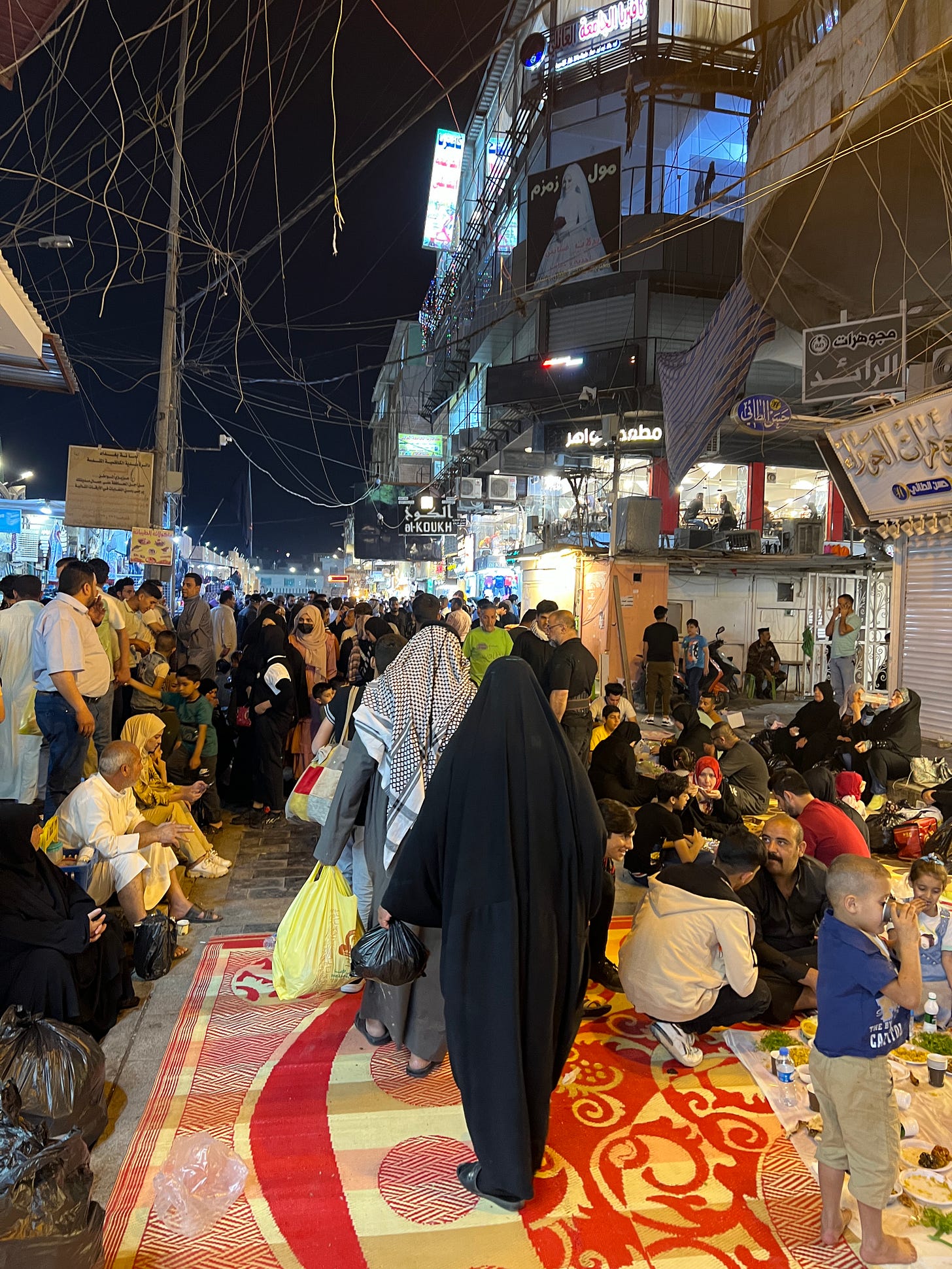

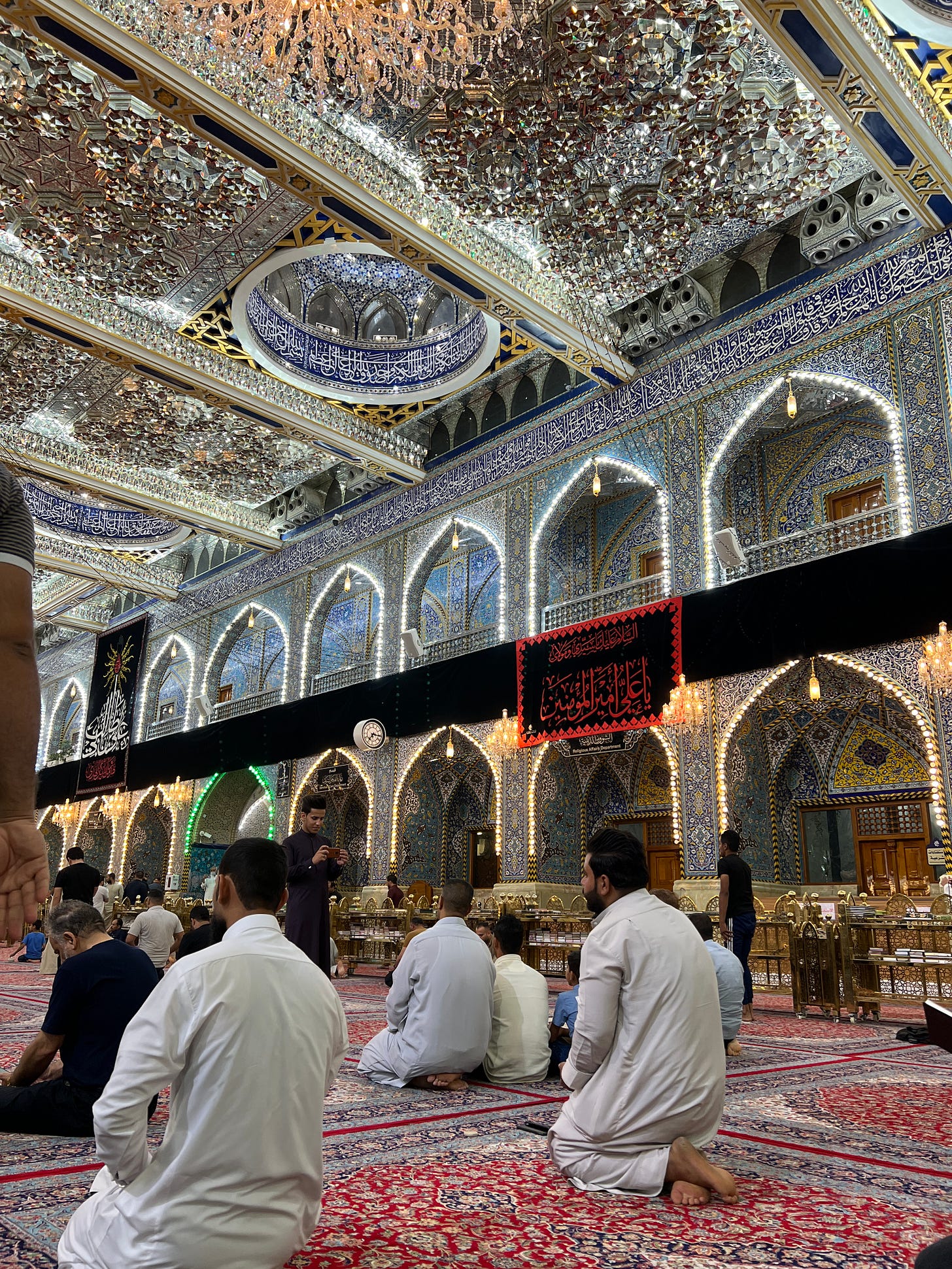
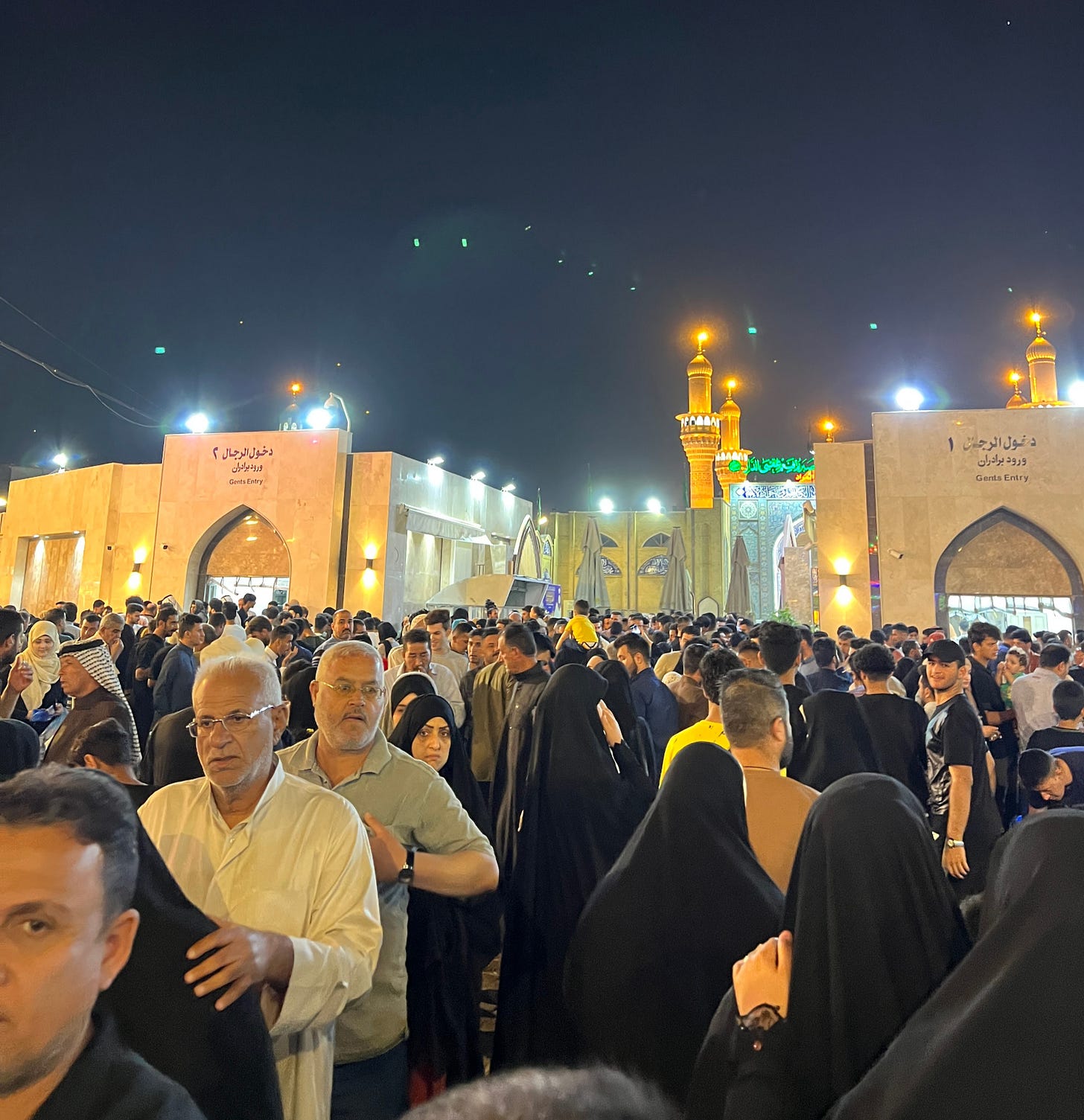
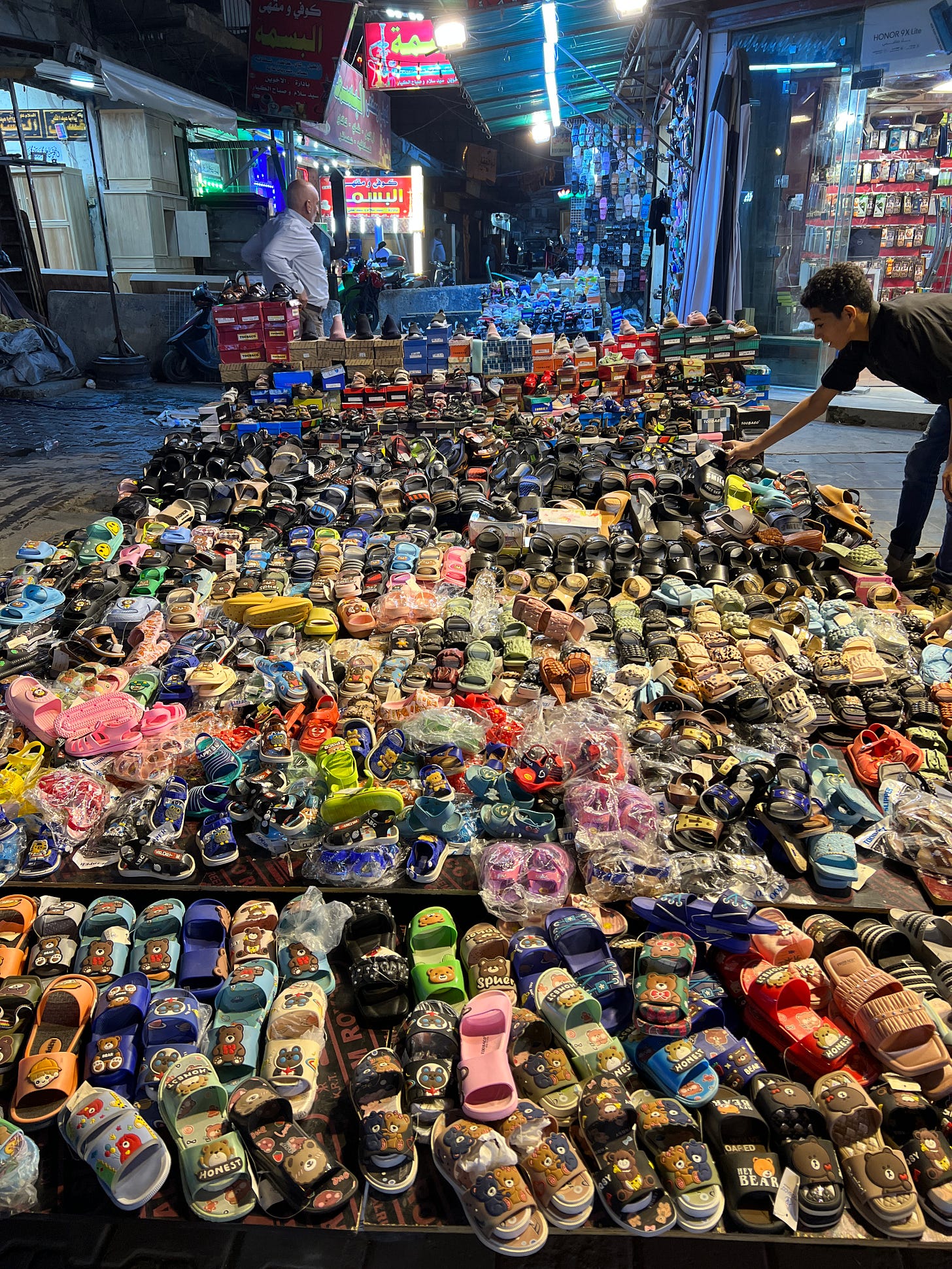
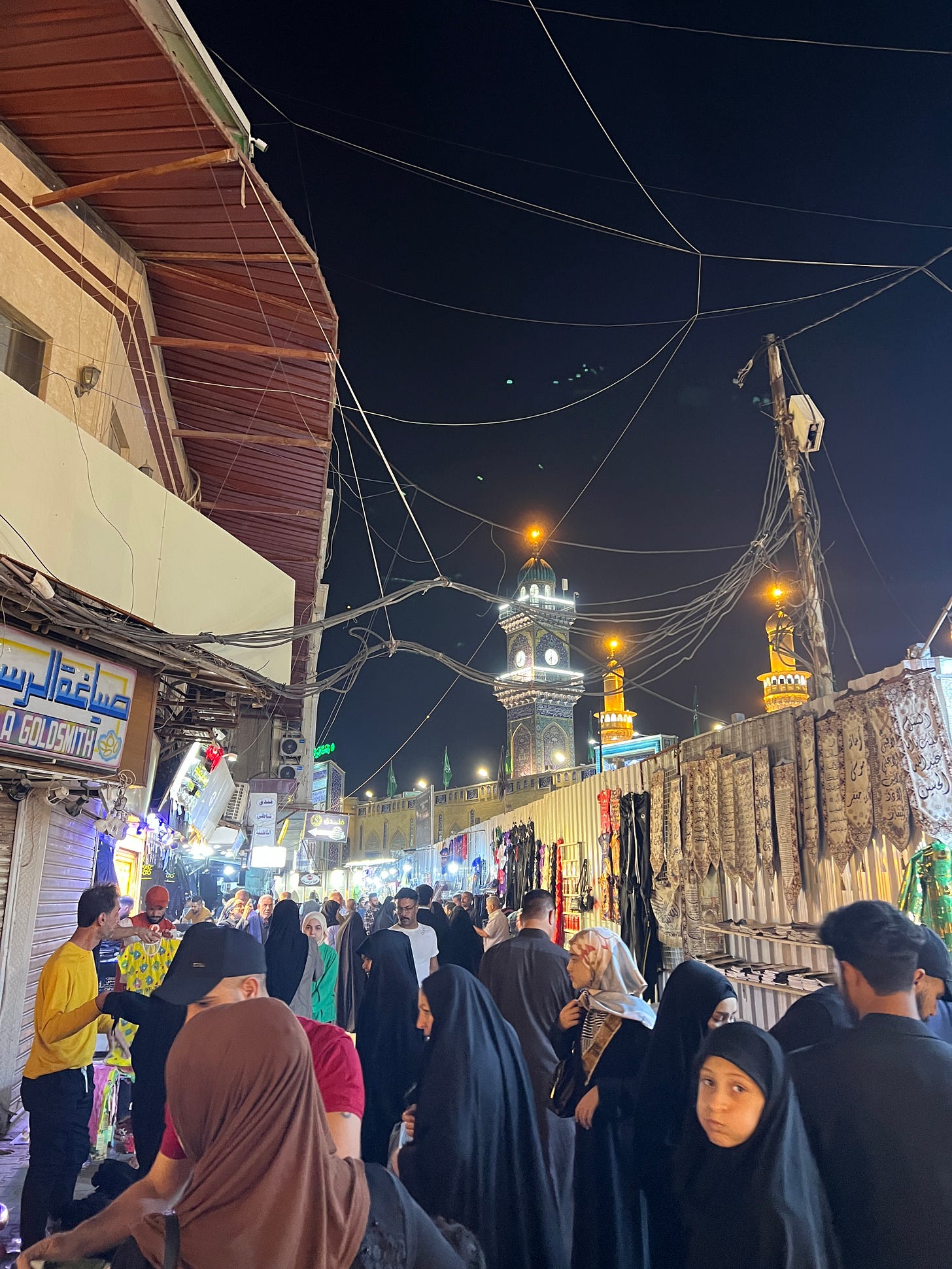
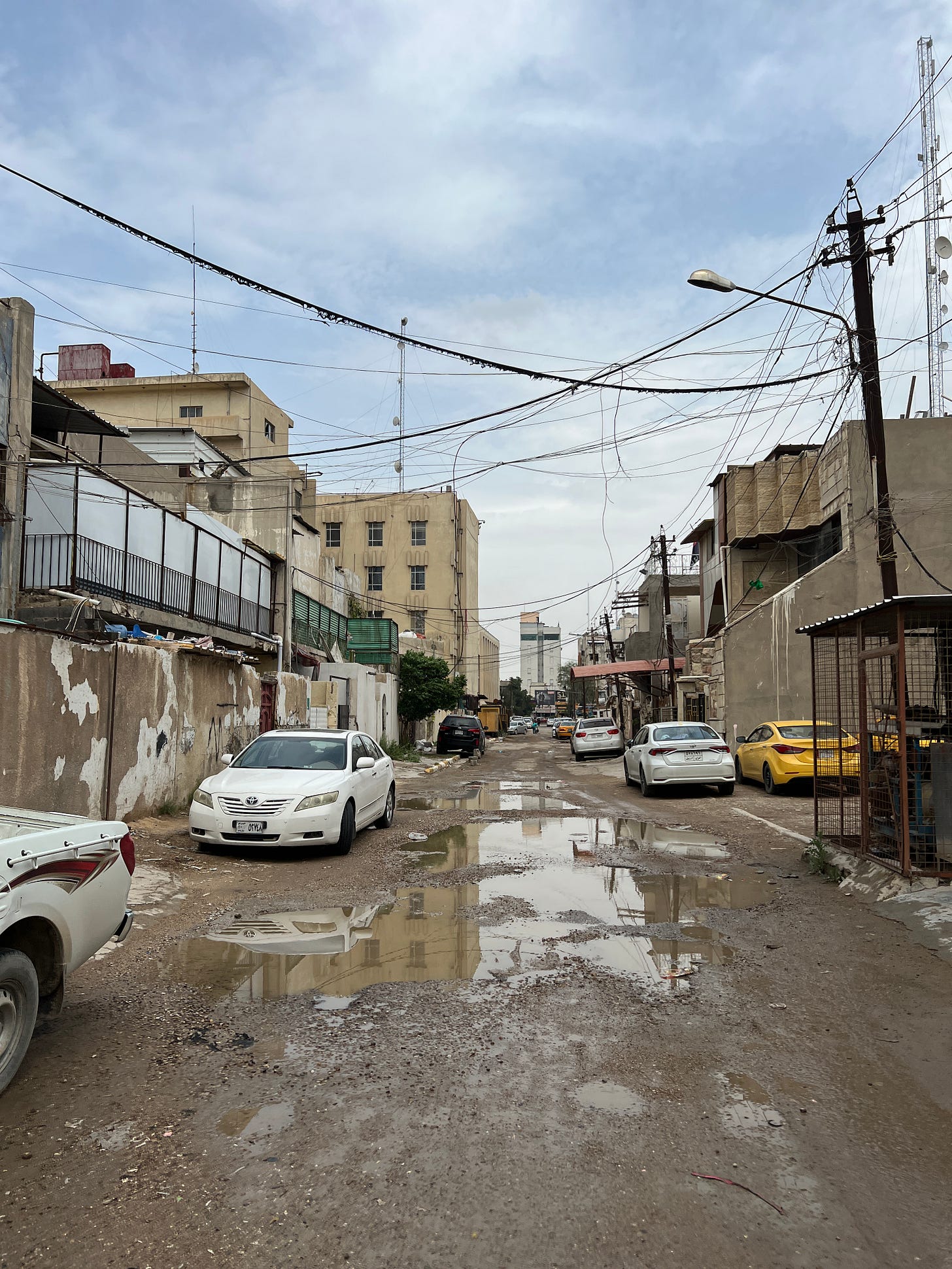
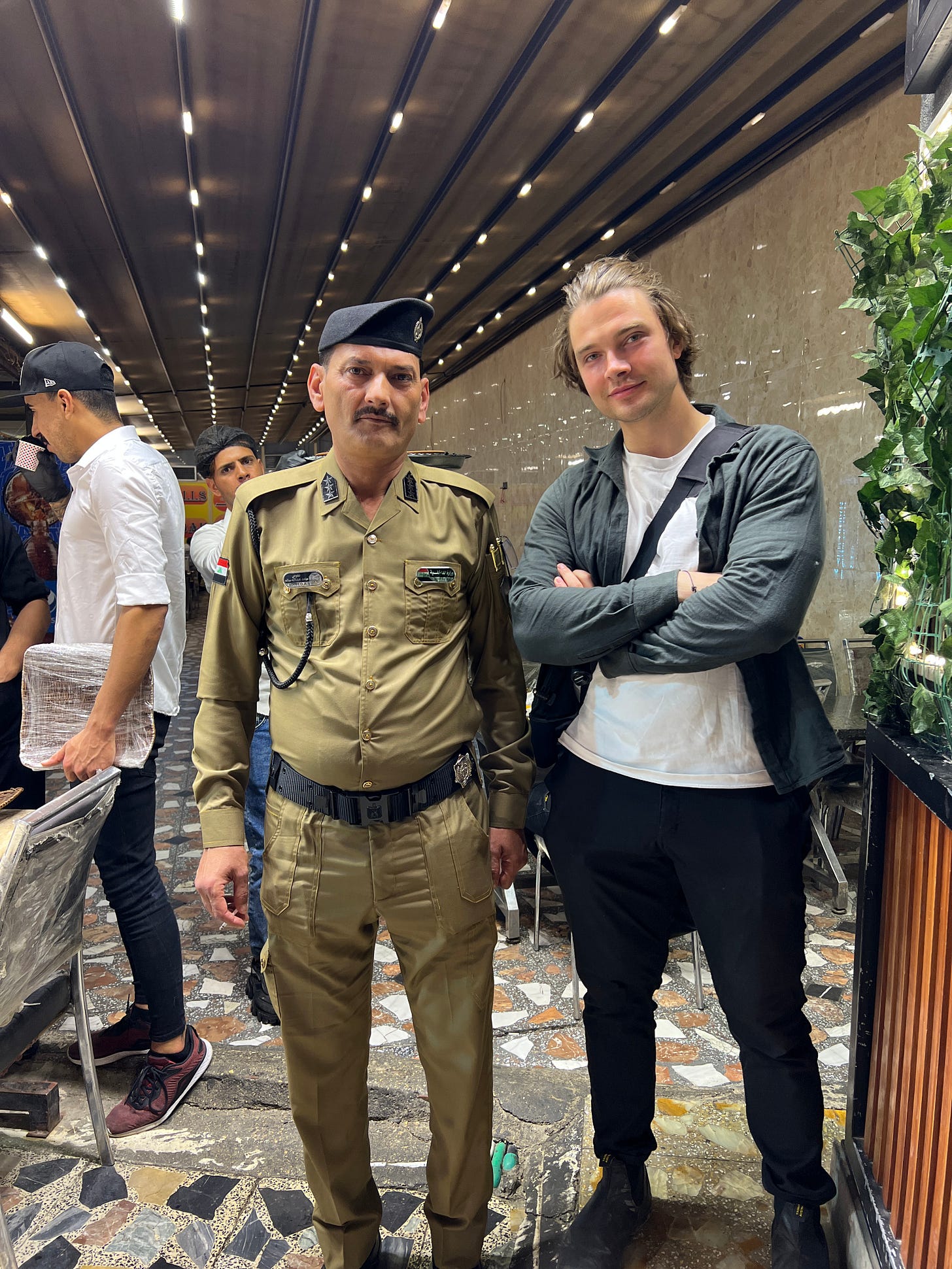
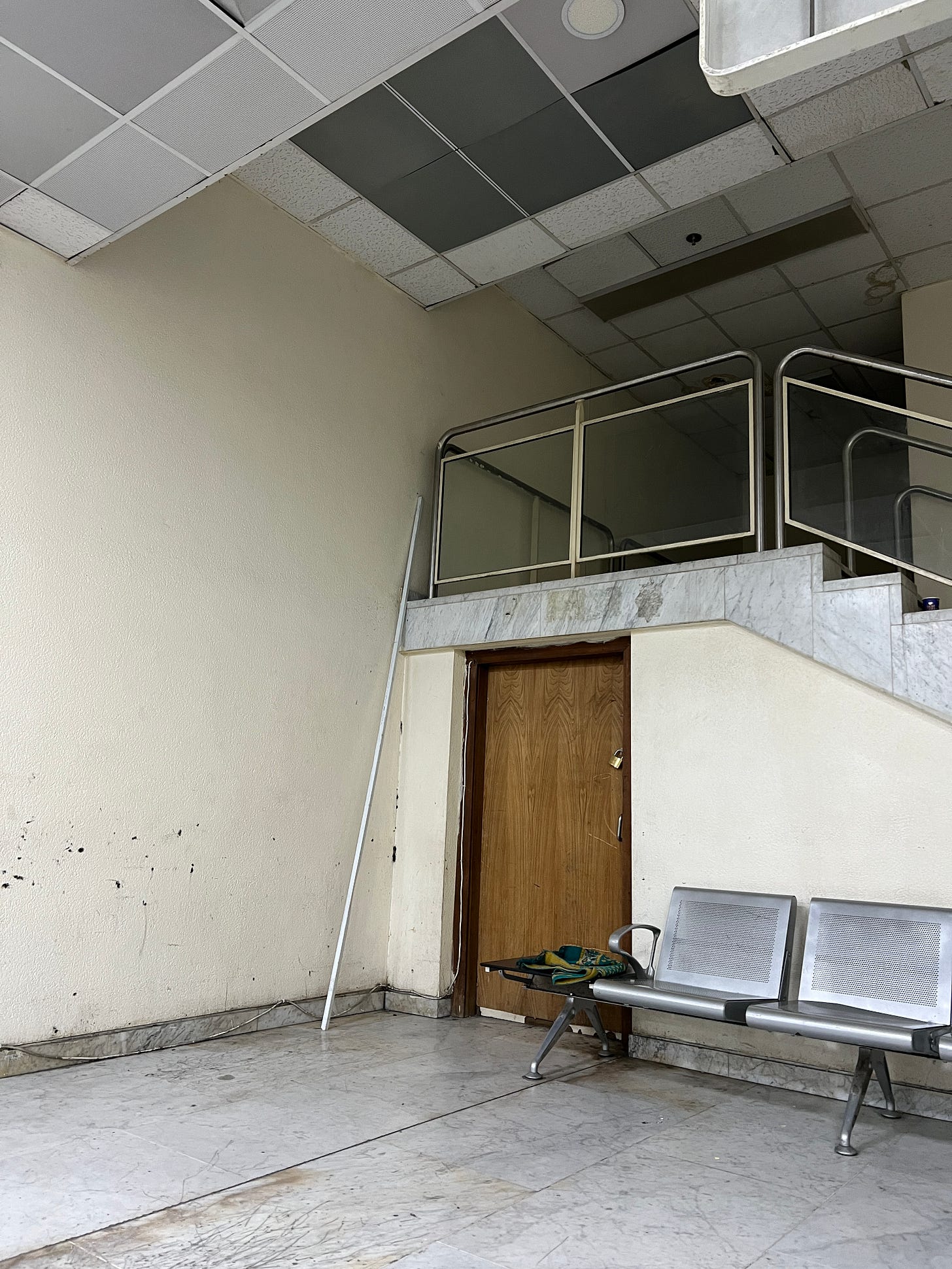


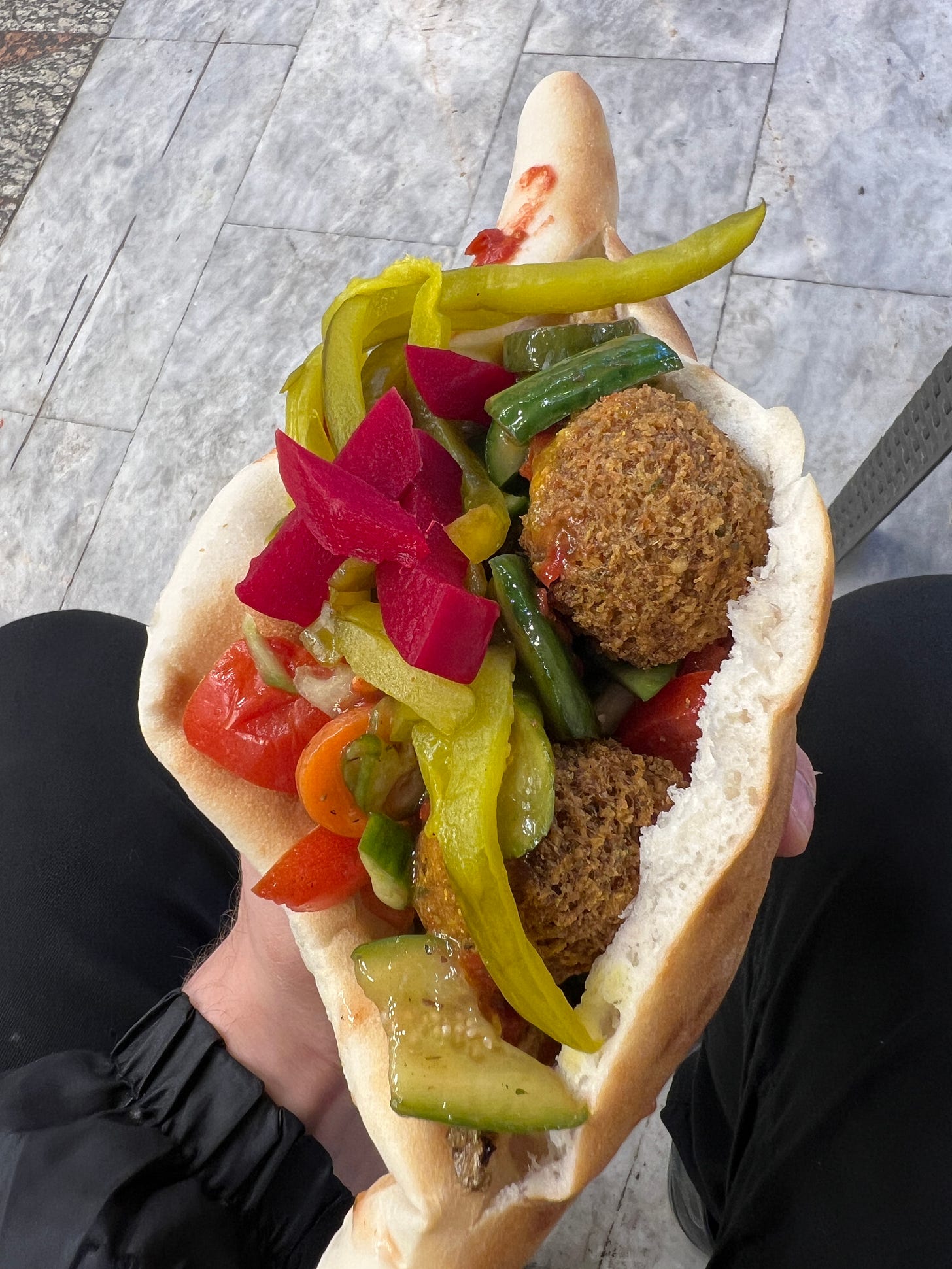



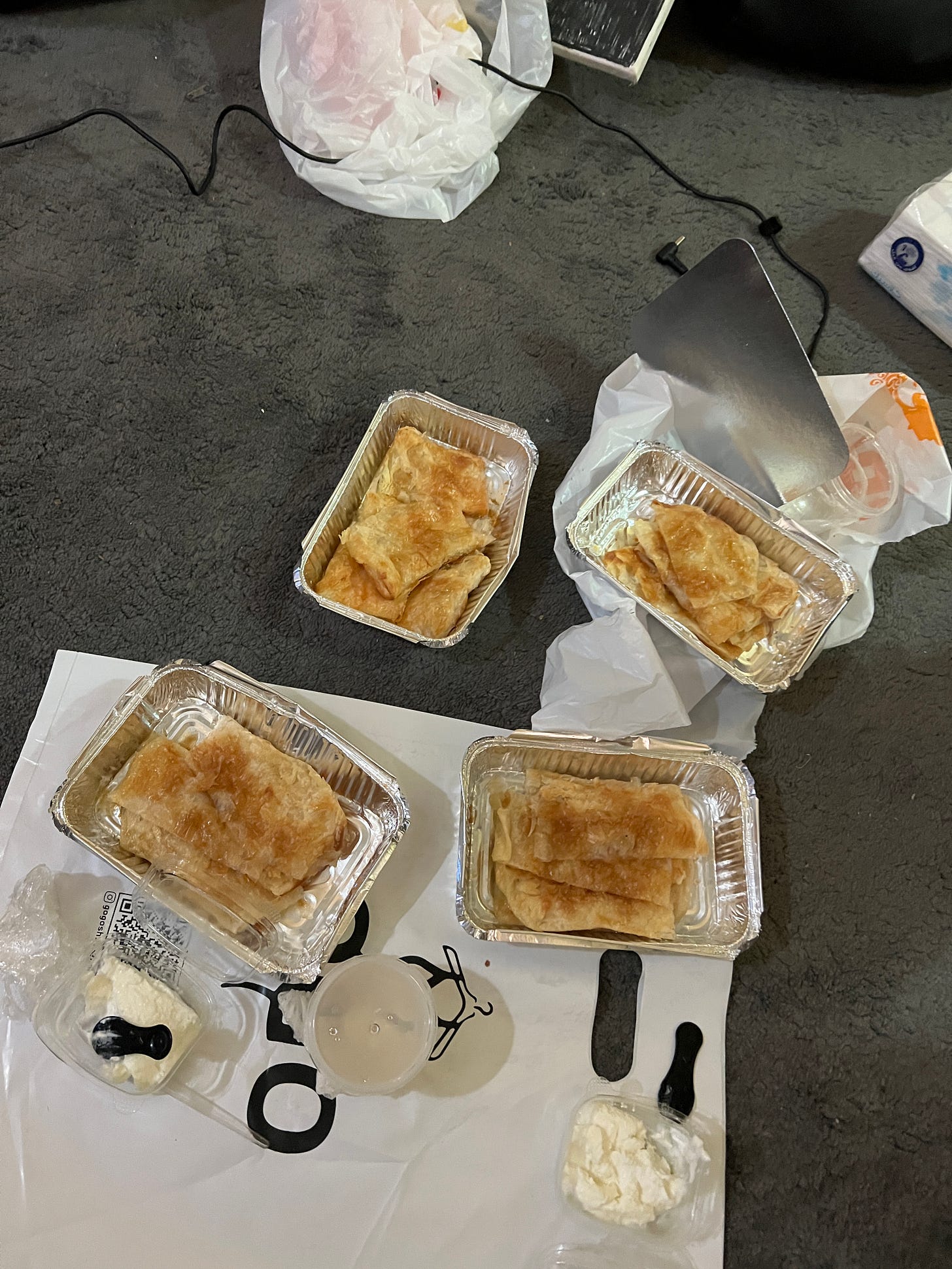

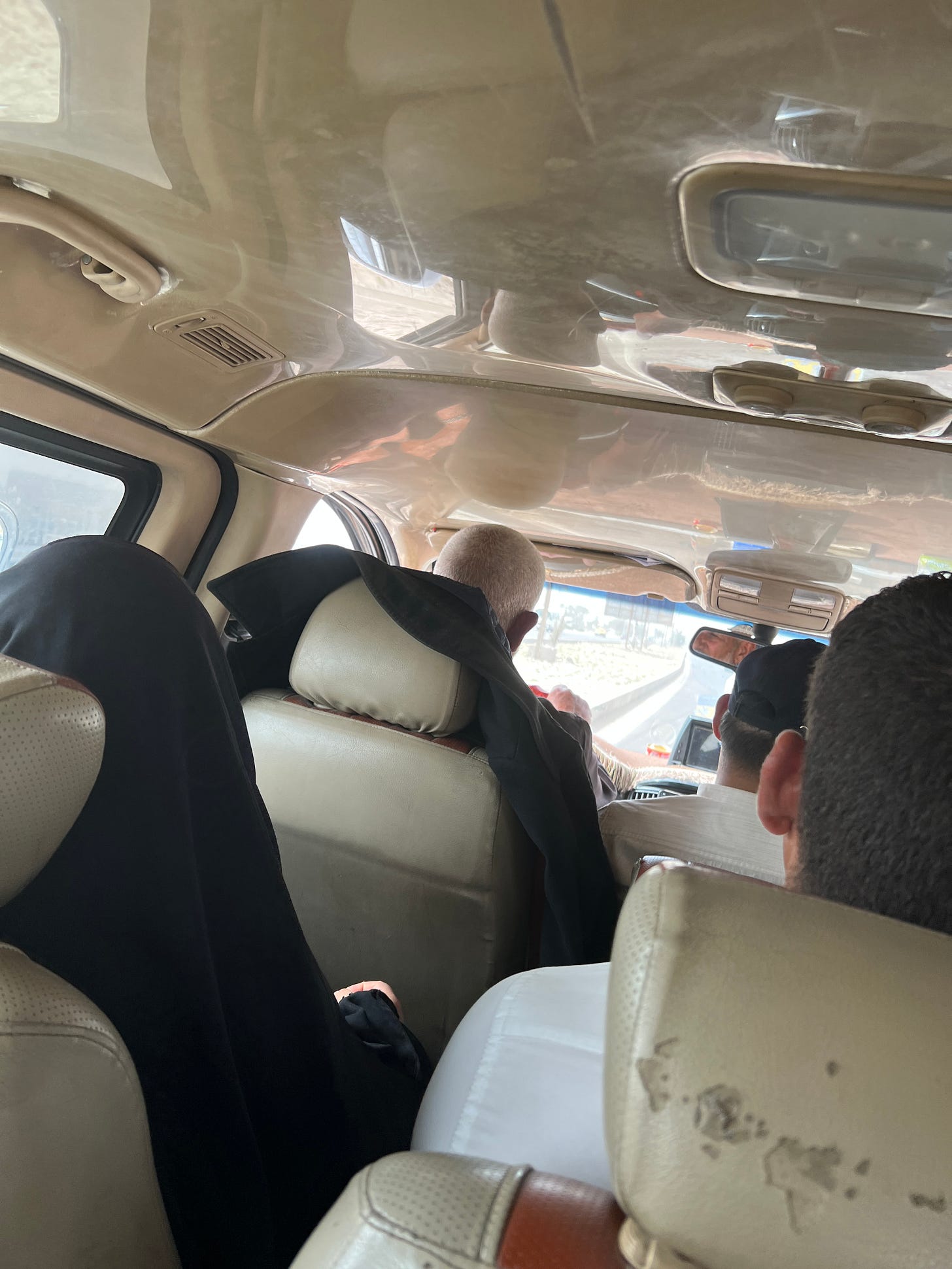
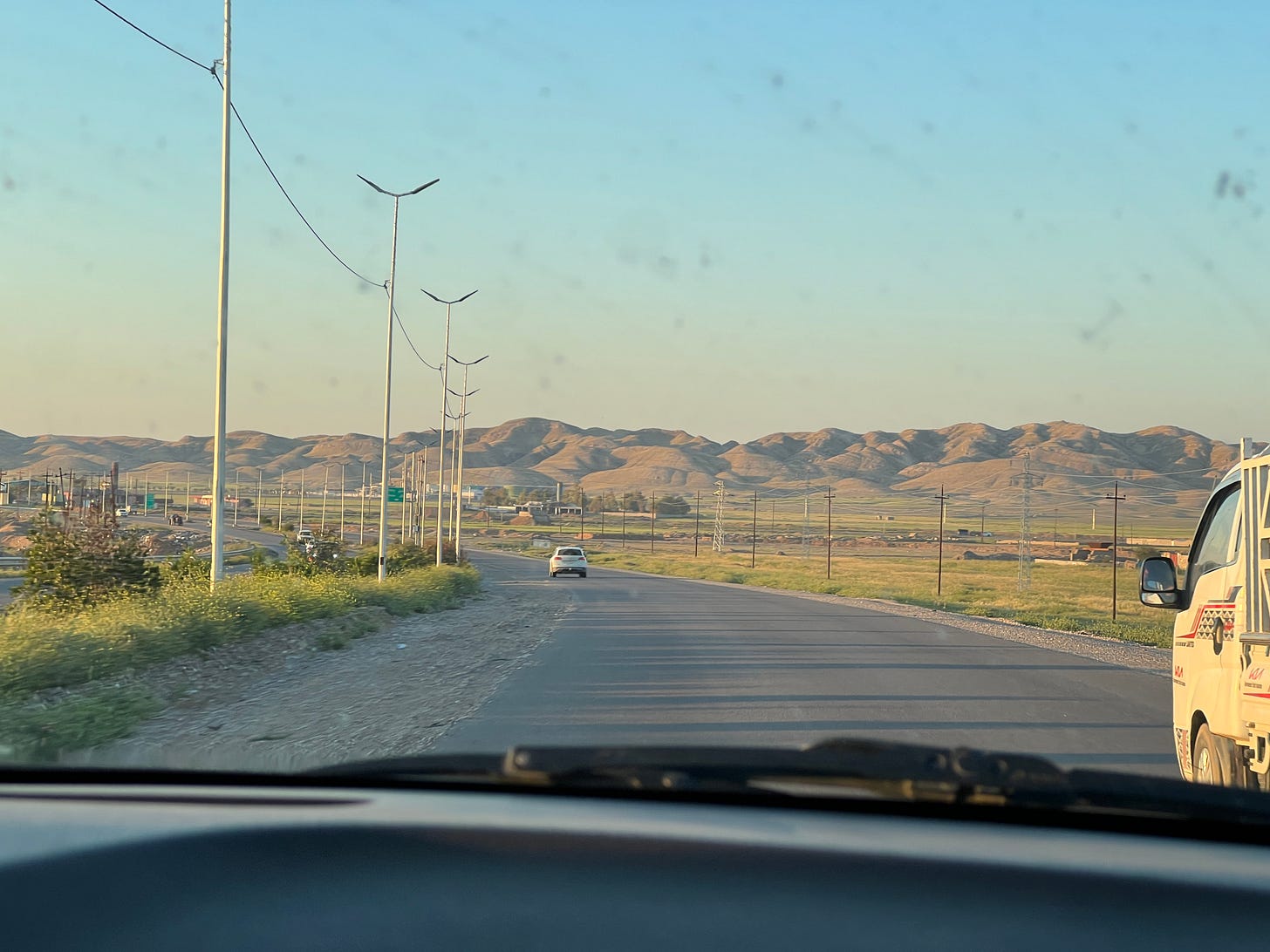



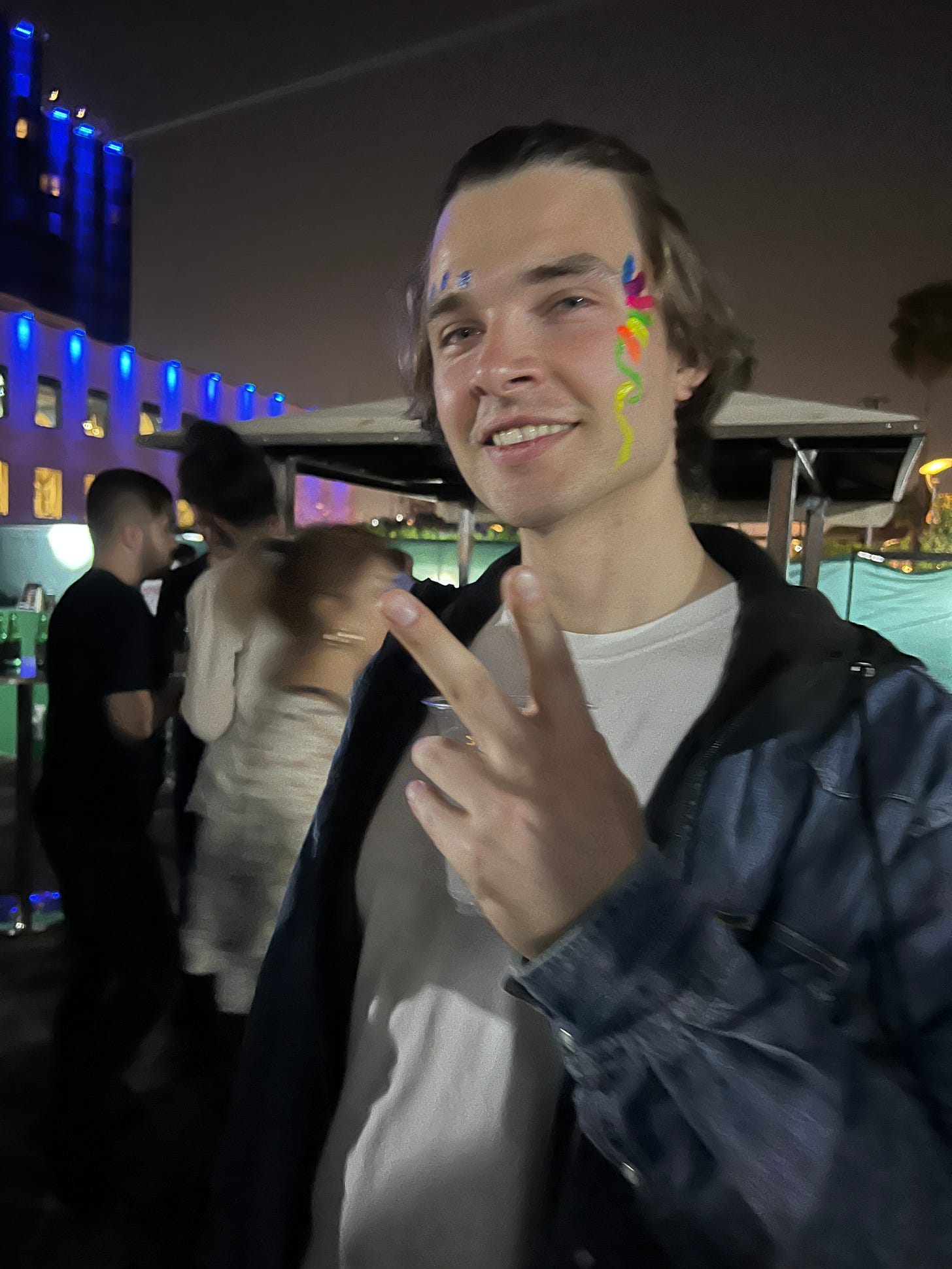
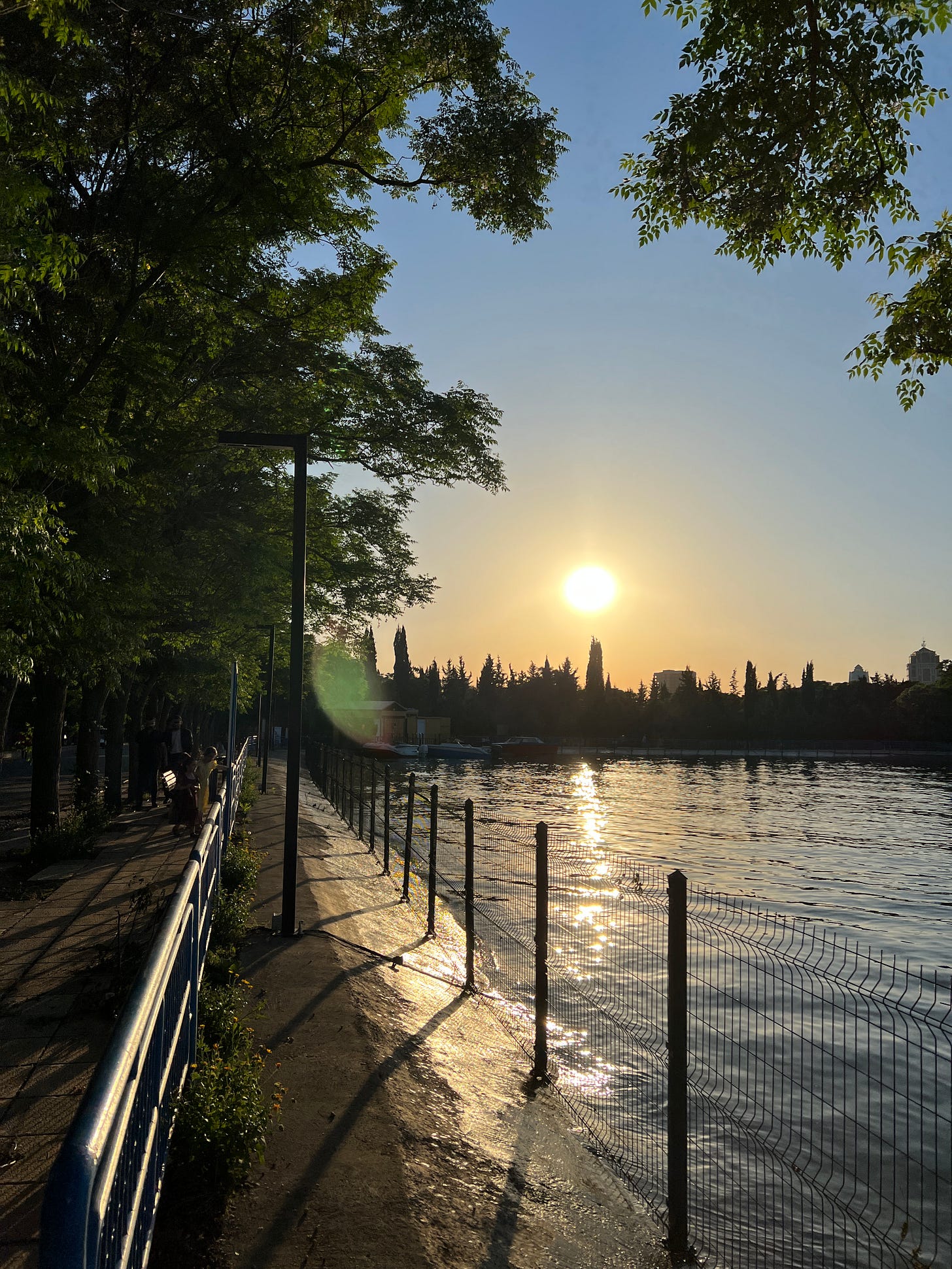


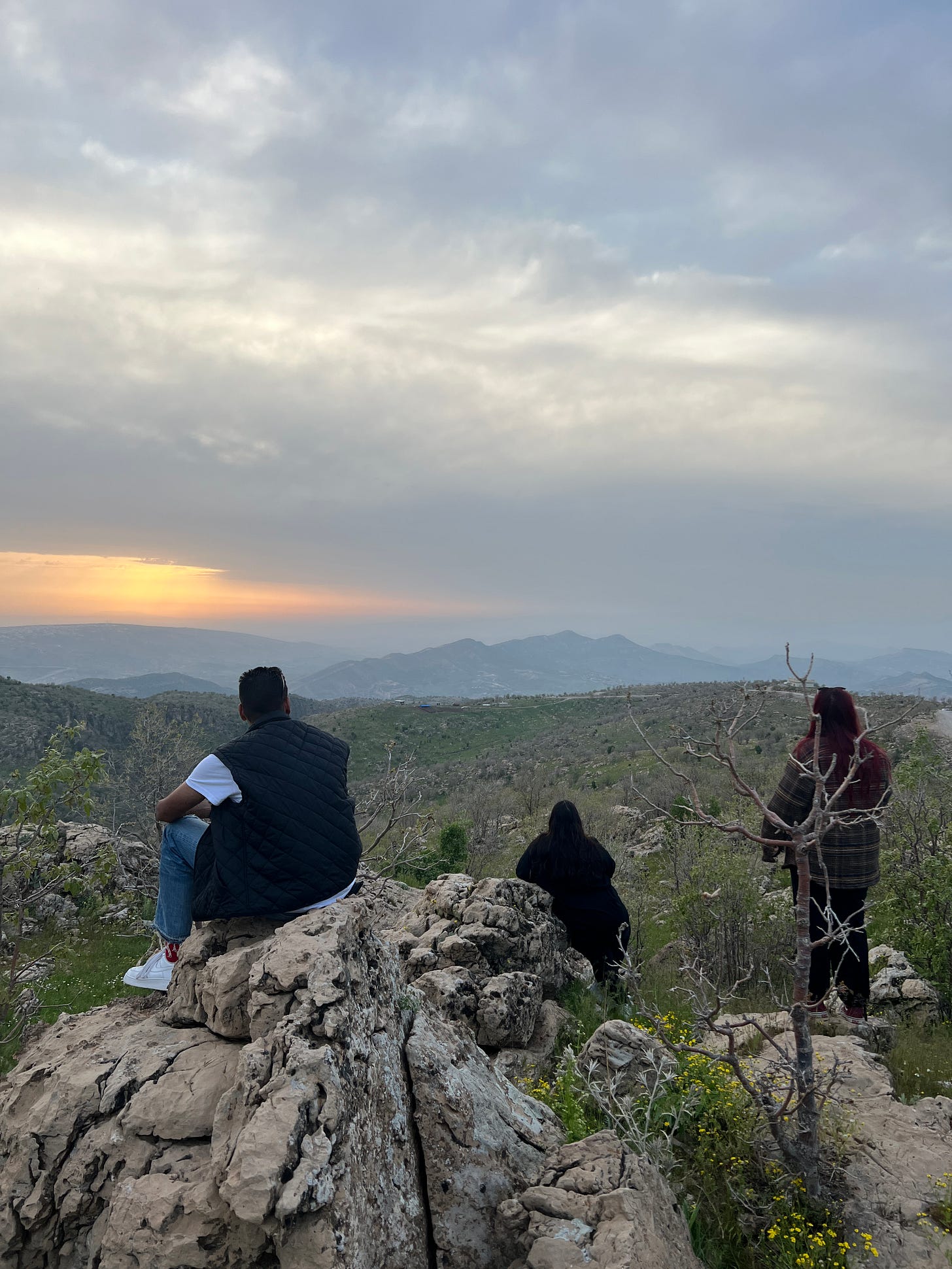



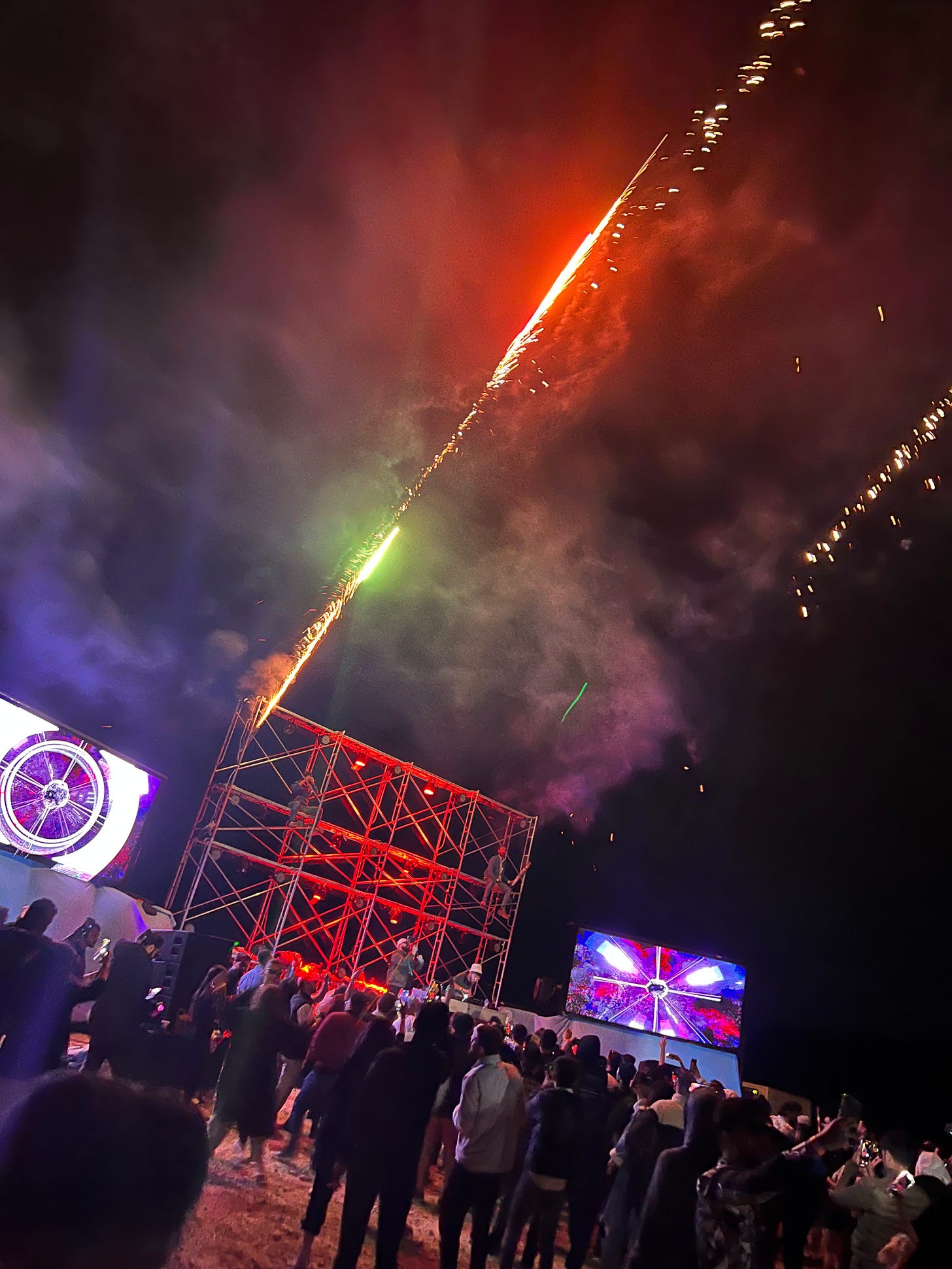
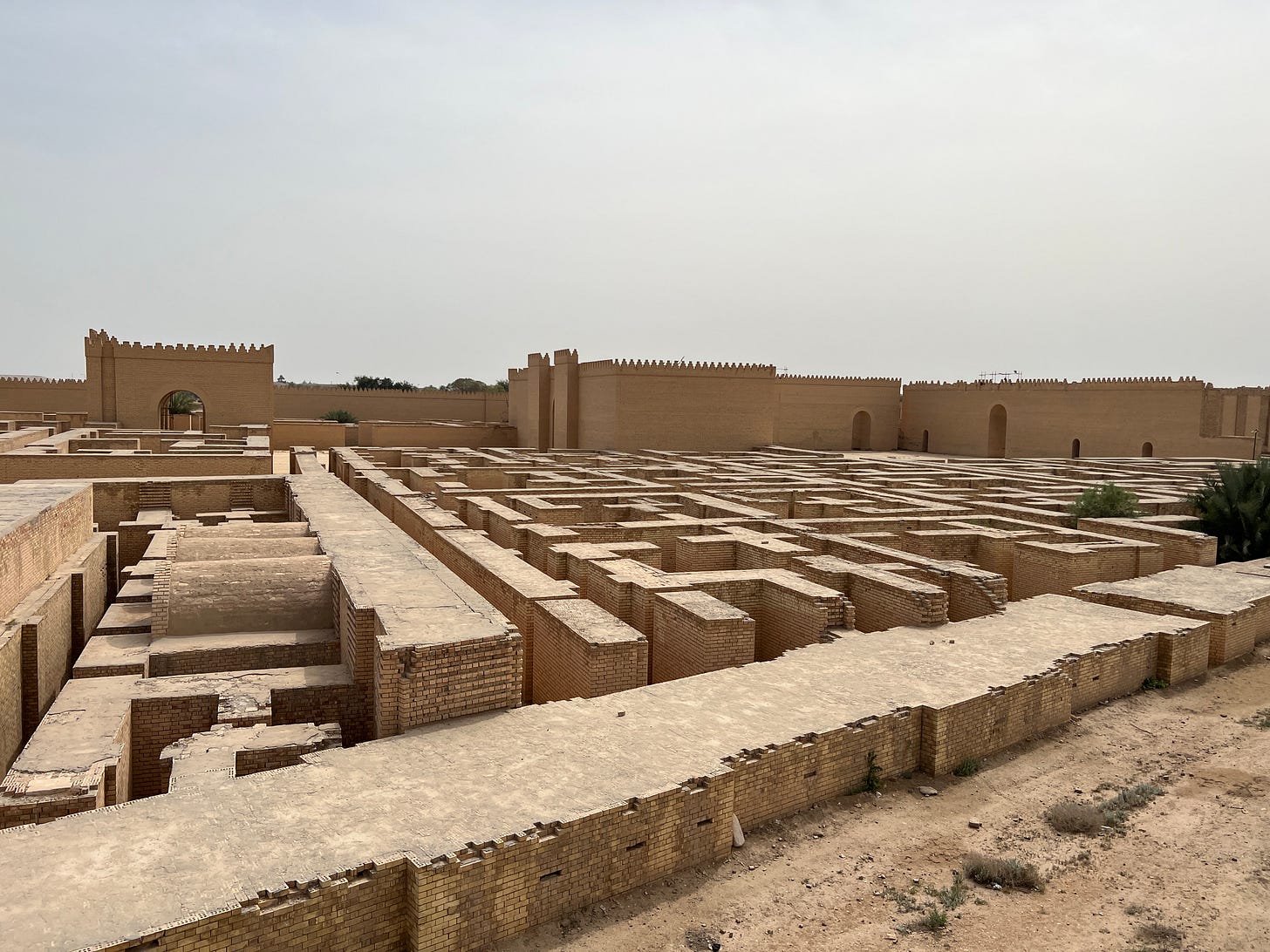
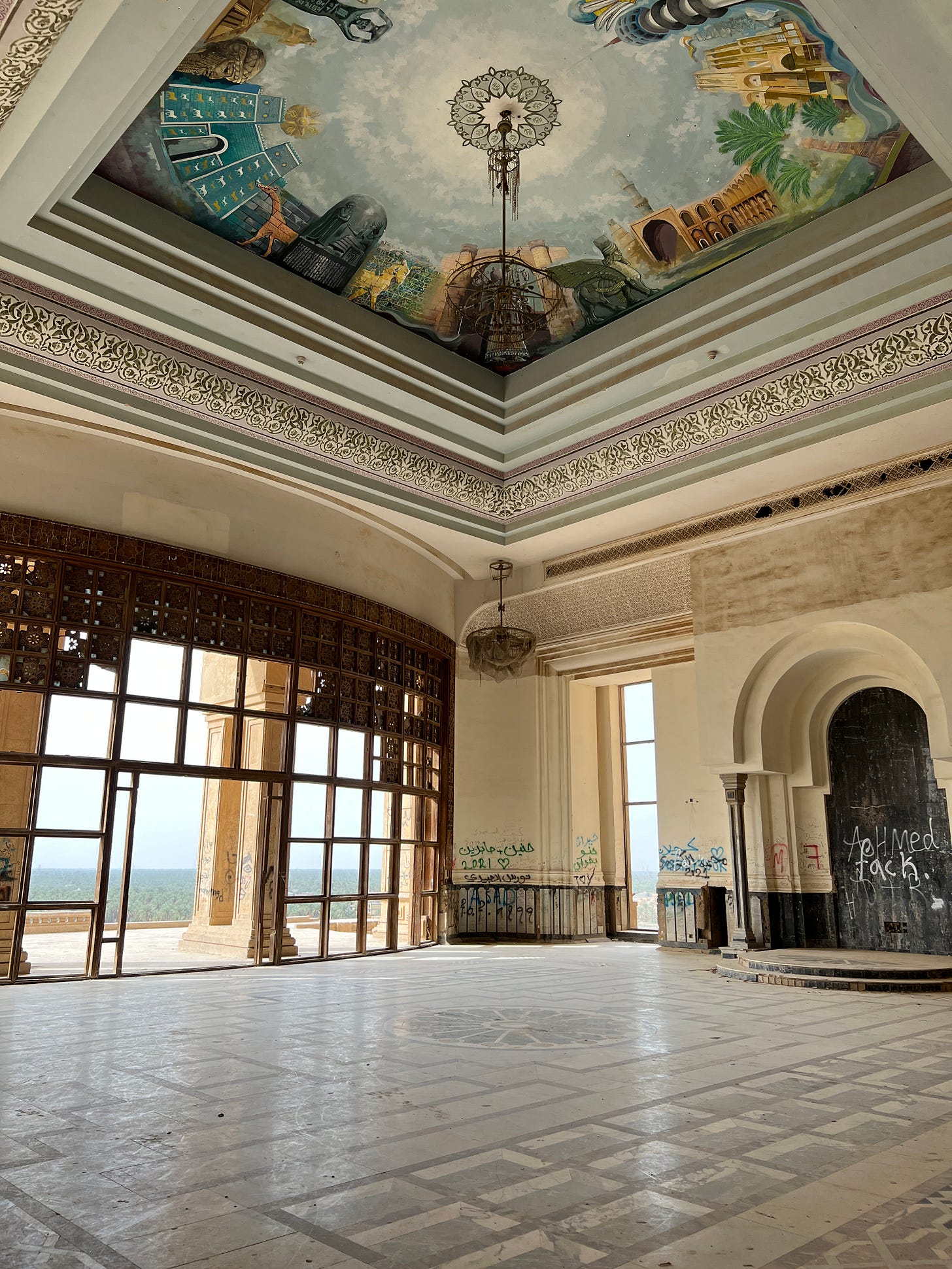


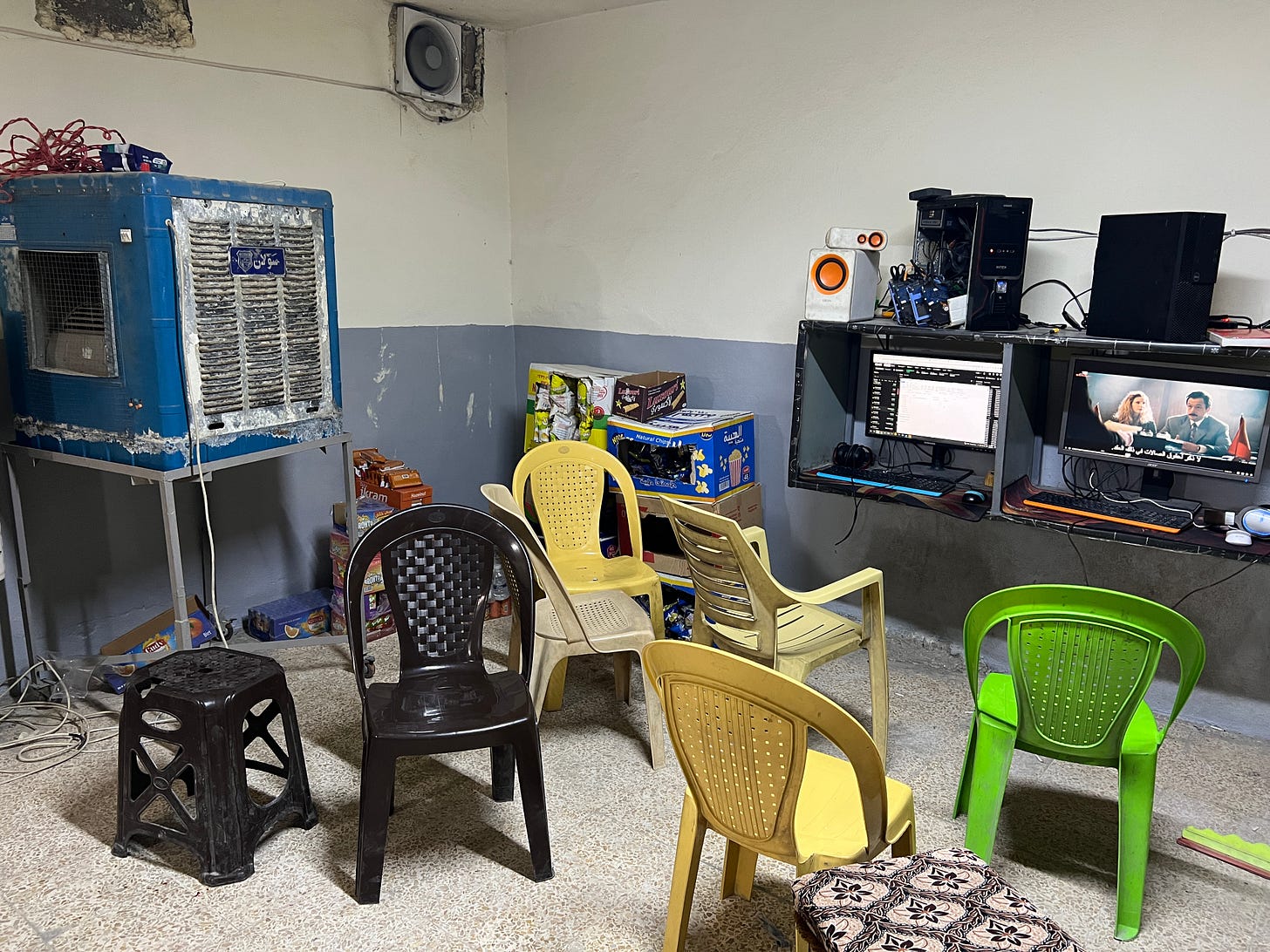
Interesting read, thank you!
I felt like a mom reading this. Most of the things you talked about regarding iraqis is just very typical iraqi behaviour. Glad you had fun there!